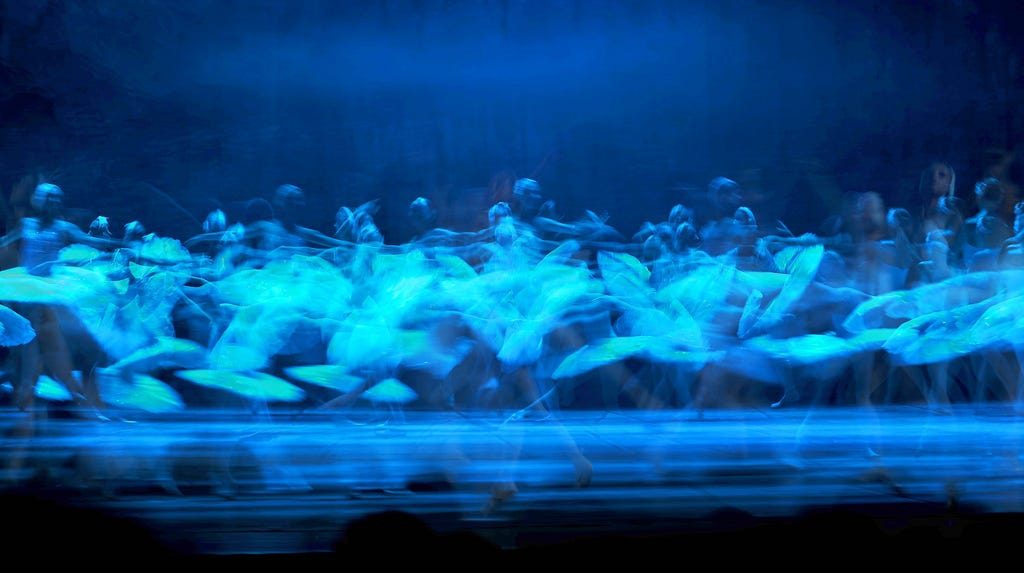The Dancers of Thought
My mind works aphoristically. It comes up with insights about a variety of particular things effortlessly, but it takes me a lot of effort to put those insights together into a coherent system. When I try to put them together, they seem to lose their life. It is the difference between an orderly military march and an improvised dance solo.
Though the dancer’s movements are not following the movements of any other dancers, they seem to have an organic harmony of their own; they are spontaneous but not chaotic; they are like the music a master piano player creates while improvising. You cannot necessarily predict the next move by the previous, but the harmony is there. It is not accidental but rather flows from a mysterious creative necessity. It is unclear whether the master follows something or something follows him. It is not the mere novelty that fascinates us, but the leaps of improvement from one pattern to the next. Improvement usually presupposes fixed standards, but the dizziness that comes when reading the mental dances of great thinkers is not solely caused by the speed with which they move within those standards but by those extra steps that transcend them without transgressing them. The great thinkers embody the spirit of the standards; the footprints they leave after their dance make up their letters and their writings.
No one ever danced philosophy like Friedrich Nietzsche. Many philosophers, accustomed to military marches, give up on him and blame him for being contradictory, confused, crazy. But anyone who was fascinated by the dance, and kept trying to learn it like they used to teach music in the old days – by ear and imitation – slowly realized it’s intrinsic order and profundity. We are now living in the tertiary generation of Nietzsche scholarship, and after the clearing of many gross misinterpretations, his importance is now secured in the annals of intellectual history. Even in hard-nosed Anglo-American analytic universities, at least his Genealogy of Morality is seen as an important though eccentric contribution to moral philosophy.
Never had a philosopher stimulated my mind in such diverse ways as Nietzsche. His writings tried to reflect the spirit of the dance of philosophy, not its letter. When I was being tortured by the likes of Heidegger and Hegel on the one side, and Davidson and Wiggins on the other, I used to open a book of The Gay Science in order to escape the morgue of thought for a breath of fresh air. I am not denying that one cannot learn a great deal from dissecting the corpses of thought. But to mistake dissection for philosophy requires you to kill her in the process. And that is what most philosophers have been doing over the last century, killing philosophy and making a living by being the anatomists of thought. No wonder the number of philosophy departments has been shrinking over the years and lay people don’t see its use in everyday life.
I am still plagued by doubts as to whether I should dance or come up with a military formation. I’m trying my feet at both, always experimenting, like my mentor. In the end, they don’t send dancers to the front. Soldiers win the wars – but only dancers know how to celebrate victory.
Philosophy is not just about winning the good life, but celebrating it after you’ve won it. It is not only about dissecting problems, it is also about living the solutions. A philosopher who has remained in the dissecting room is only half a philosopher. He may know the steps, but he doesn’t know how to dance. I’ve been in and out of the dissecting room, but I always felt the difference. The ultimate gift of philosophy is a flourishing life. A life geared towards actualizing the conditions, both inner and outer, for your maturity and the subsequent natural inclination to share its fruits. This is what I’ve been living from the end of 2002. I don’t know exactly how it occurred, but I’ve been trying to find out – it’s not much fun dancing alone, though it’s damn better than not dancing at all.
I belong to those musicians of thought who learned by listening and imitating, till they learned the spirit behind the music, and started to dance to their own, novel music. But many people want to dance to their own music before they know how to play. They want to follow their own drummer before knowing how to follow. They believe learning from another constrains their own creativity. They are fools. They will never become great artists. Because Art requires humility and no child ever lost its creativity by learning a language it did not create.


